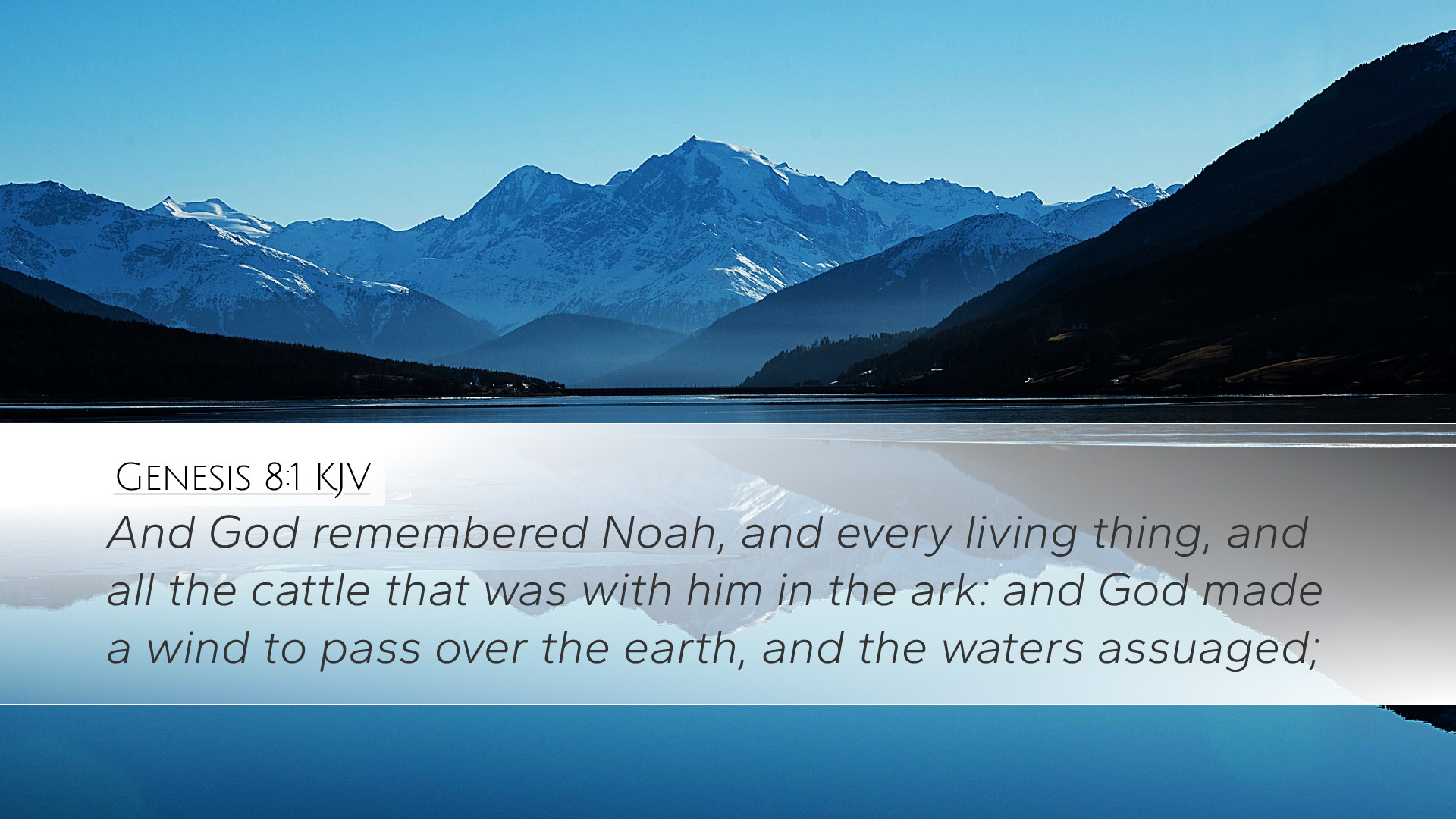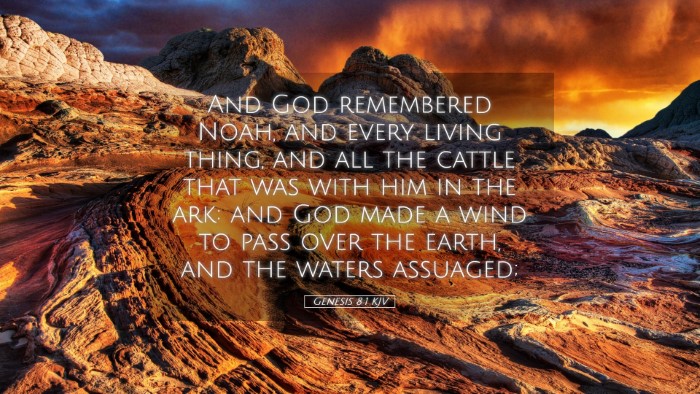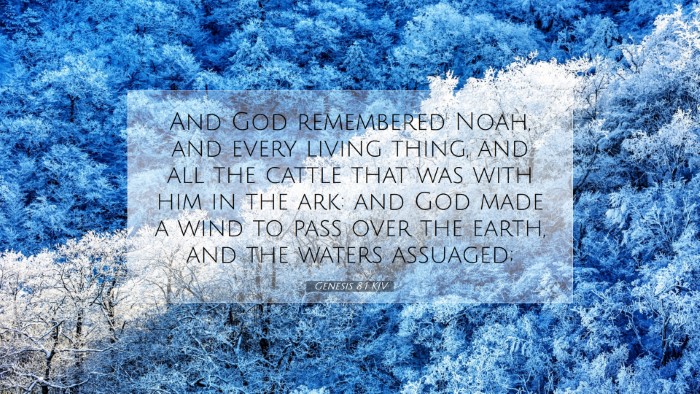Commentary on Genesis 8:1
Verse: "But God remembered Noah, and all the beasts, and all the cattle that were with him in the ark: and God made a wind to pass over the earth, and the waters assuaged."
Introduction
The passage in Genesis 8:1 is pivotal in the narrative of Noah, encapsulating themes of divine mercy, remembrance, and renewal. Each public domain commentary sheds light on differing dimensions of this verse, emphasizing its theological significance and its implications for humanity.
Theological Insights
The first insight from Matthew Henry's Commentary highlights the phrase "But God remembered Noah." This remembrance is not merely a passing thought, but a profound action of God, indicating His covenant faithfulness. Henry asserts that God's remembrance in this context conveys His active involvement in the world and His covenantal relationship with His creation.
Albert Barnes complements this by stating that God’s remembrance denotes His compassion and care. It's a reminder that, despite the judgment of the flood, God's mercy prevails. In the narrative, while the earth was in chaos, God had not forgotten the righteous, showcasing a significant theological point: God's dealings with humanity are not without grace.
Adam Clarke adds another layer by interpreting the wind which God sent to pass over the earth. Clarke notes that the wind signifies God's spirit and presence in nature, illustrating that divine intervention can bring about changes in creation. The assuaging of the waters is a clear representation of the renewal of the earth after a period of judgment.
Application for Pastoral Ministry
This passage offers valuable insights for pastoral ministry, particularly in understanding God’s gracious nature. Pastors can draw on Henry's view that even in times of judgment, God is still present with His people. This can provide hope to congregations experiencing their own "floods" of difficulties.
- Hope in Remembrance: Just as God remembered Noah, He remembers His people today. Pastors can encourage their congregations that they are never forgotten.
- Renewal and Restoration: The wind that God sent signifies that after tumultuous times, there will be restorative processes. This can be a powerful message in sermons about spiritual renewal and redemption.
- Encouragement to Trust: In light of Barnes' emphasis on mercy amid judgment, pastors can remind their congregations to trust in God's plan even when circumstances seem dire.
Commentary Themes
- Remembrance of God: This reflects not only God’s awareness but also His covenant. It reminds us that God is actively involved in the world.
- Divine Intervention: The act of sending the wind illustrates God’s sovereignty and ability to intervene in creation, a core belief for theologians studying divine omnipotence.
- Transformation after Judgment: Clarke's observation offers insights into the process of transformation that follows judgment. For theologians, this speaks to the nature of repentance and re-creation.
Historical Context
Understanding the historical backdrop of this passage is crucial. The flood signifies not just a local event but a cosmic reset. Observing Henry's thoughts, we see that the flood serves a purpose in God's long-term plan for humanity. The aftermath of the flood is critical for understanding God’s continued interaction with creation.
Conclusion
Genesis 8:1 serves as a profound reminder of God's faithfulness, mercy, and sovereignty. Through the insights provided by various public domain commentators like Matthew Henry, Albert Barnes, and Adam Clarke, one can appreciate the multidimensional aspects of God's character as it pertains to humanity. This verse emphasizes that even in times of distress and judgment, there is hope for renewal and restoration.
As part of biblical studies, this passage challenges pastors, students, and theologians to delve deeper into God's nature and His promises, encouraging a rich engagement with the text and its implications for faith today.


